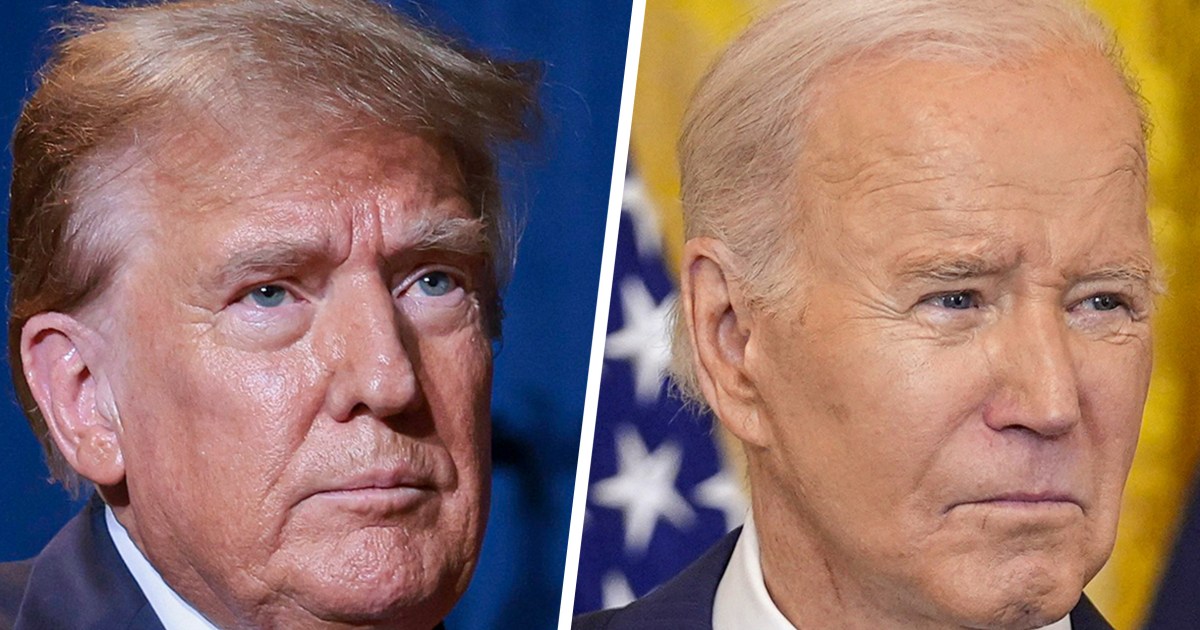Republican Congresswoman Nicole Malliotakis, representative for New York, cited on Wednesday in the chamber a song by the Rolling Stones to defend the agreement reached by its leader, Kevin McCarthy, with the president of the United States, Joe Biden: "You can't always get what you want" (You Can't Always Get What You Want ). In the midst of the rebellion of the hard wing of the party, most Republican congressmen seemed resigned to supporting a law that represents an important victory for Biden. The agreement suspends the debt ceiling (set at 31.38 trillion dollars) until 2025 in exchange for, among other measures, a spending cut of about 140,000 million dollars.
McCarthy has highlighted as a great achievement having forced the president to sit down to negotiate. That this is one of Biden's main concessions gives an idea of how well he comes out of the trance. The president has a clear financial horizon in the remainder of his term, has not offered large counterparts and also points to the trick of an agreement with the support of both parties, which allows him to exhibit his centrism and point to Donald Trump as an extremist. Round play.
Few could imagine at the beginning of the year such a happy outcome for the president. When the Republican ultras repeatedly boycotted the election of Kevin McCarthy as speaker of the House of Representatives (he was elected on the 15th ballot), one of the points they put the most emphasis on was the debt ceiling. To raise it, the congressmen of the Republican Freedom Caucus faction proposed huge spending cuts and managed to get McCarthy to support that demand.
Now they have felt betrayed. They've raised the tone against McCarthy, they've talked about surrender and failure. They have the feeling of a missed opportunity. The debt ceiling was his main tool of pressure on the president. They are not going to have anything like it in the two years of the legislature. And they have given it in exchange, mainly, for Biden sitting down to negotiate.
"Washington is broken. Republicans have been mocked by a president who can't find his pants," South Carolina Rep. Nancy Mace tweeted as the start of a devastating thread about the deal.
The Democrats presented the Republican position as blackmail, or rather as a kidnapping and their negotiating proposals as a ransom note for the hostages. Biden demanded an extension of the debt ceiling without conditions, routine, such as those that Congress has approved so many times, among others to Donald Trump. He had the experience of the long and difficult negotiation of 2011, when he was Barack Obama's vice president and the Republicans decided to use the debt ceiling as a negotiating weapon.
Biden recalled that the negotiation did not advance in 2011 until the deadline, so this time it was planted for months: raising the debt ceiling is an obligation of Congress, he insisted, while his teams prepared. When he finally agreed to meet with McCarthy, there was no time to waste. With a short negotiation, you have avoided unnecessary attrition.
In February's State of the Union address, the president ripped out a somewhat informal and impromptu commitment from Republicans, when they loudly denied wanting cuts in Social Security: "I love conversions. As we apparently agree, Social Security and Medicare are already out of the question, right? We have unanimity!" he said, drawing laughter and applause from Democrats.
Republicans, meanwhile, managed to coalesce around a proposal for aggressive cuts over 10 years that repealed some of the star measures of the first half of Biden's term, including his incentives for the energy transition. It had no chance of passing the Senate, but it portrayed Republican ambitions and pleased its ultra wing.
When the negotiation began, Biden's team struggled to find in the budgets spending items that were not executed (and that had no signs of being used) so that McCarthy could present them to his own as conquests. That catch-all included a large fund to deal with the pandemic, but also small remnants of other programs, whose cancellation fills pages of the law. Negotiators also found a way to present the cuts in a way that appears to be much larger than they are. The Congressional Budget Office, an independent body, assesses the effects of the policies in 10 years, but the cuts have been approved for only two years, another Democratic triumph, and remain below 0.5% of GDP.
McCarthy spoke on the floor to defend the deal on Wednesday and raised the issue of government spending philosophically as a "moral issue." "[The law] may not include everything we need to do," he acknowledged. He mentioned the elimination of appropriations as an achievement, but dwelt little on concrete cuts and claimed victory for having made Biden negotiate. "We have prevented Democrats from writing a blank check to spend more, following the largest spending binge in American history. We have used the power we had to force the president to negotiate," he said.
Despite the Republican majority, the bill won much more Democratic support in the vote. Biden and his team worried that McCarthy wouldn't be able to get his people to approve the deal. The president tried not to sell the bear's skin before hunting it. On Monday, on the South Mall concourse, before a small group of reporters, he half-heartedly said, "One of the things I hear some of you say is, 'Why doesn't Biden say what a good deal it is?' Why would he say how good he is before the vote? Do you think that will help me pass it? No. That is why you do not negotiate very well. Anyway."
Preserving health care and more defense spending
Biden has managed to preserve Social Security and health care, has granted Republicans an increase in defense spending that also suits him in the midst of the Ukraine war, has maintained his incentives for the energy transition and the reduction in student loans (pending judges).
What have been your main assignments? Apart from the fact of negotiating itself, there are three points that have irritated part of the Democrats. One is the streamlining of permits for the construction of a gas pipeline in Appalachia, which environmentalists oppose, but which was a commitment made by Biden to move forward with the Inflation Reduction Act (IRA) to then win the vote of Joe Manchin, Democratic senator from Virginia.
And, in terms of spending, the two items that have most focused the debate are funds for the IRS, the tax agency, and food aid. The IRA increased IRS funding by $80 billion to replenish administrative staff, digitize the service and make other improvements while increasing oversight against fraud by large companies and very high rents. Republicans built a false narrative that the money was to hire an army of inspectors and crack taxpayers, so it had become a key item.
In their initial proposal, the Republicans eliminated that item entirely; In the agreement, the cut has remained at 20,000 million. But $60 billion remains, and the agency has flexibility to spend some of that money ahead of schedule. "The Tax Agency has the necessary resources in the short term to improve customer service and pursue wealthy and corporate tax evaders," Deputy Treasury Secretary Wally Adeyemo tweeted.
Republicans demanded a halt to food aid, saying money was being thrown away, discouraging people from looking for work. To the chagrin of Democrats, those work or job search requirements have been tightened for some beneficiaries, but in return the White House has exempted veterans, homeless people and beneficiaries with family responsibilities. The result is that the cut that Republicans asked for and Democrats criticized so much means 78,000 more beneficiaries and 2,100 million more spending, according to the Congressional Budget Office. "I'm not going to vote for extending benefits," Mace said.
After years of record spending, deficits, and debt due to the pandemic, the United States needs fiscal adjustment. The approved cuts would reduce the deficit by 1.5 trillion if applied over 10 years, are smaller than those recommended by experts and their effect on the economy will be minimal.
McCarthy has saved the type by getting two-thirds of the Republican representatives to support the bill, but for him it is somewhat embarrassing that the support of the Democrats has been much more resounding. And with politics as polarized as the one advocated above all by the Republican Party, it doesn't help much that Biden is continually praising his good faith in the negotiation, how honest and respectful he has been and how well they have gotten along. At the same time, he has shown that he is not as hostage to the hard wing of the party as previously thought and has avoided going down in history as the leader of Congress who caused the first default in the history of the United States.
Obviously, in the event of default, Biden would not have been able to avoid being held accountable. Even if it were a disaster for the country, for his potential rivals in the 2024 elections a deep economic crisis would have been a gift. For the president, the outcome is almost better than if he had been approved to increase the debt ceiling without conditions.
He does not even need to say that he has won by a landslide, he benefits from being perceived as centrist, effective, capable of carrying out agreements when everyone undervalues him. This Saturday he signed the law. On Friday, from the Oval Office of the White House he gave a solemn speech: "The only way for American democracy to work is through compromise and consensus," he said. "The approval of this budget agreement was critical. The stakes could not be higher." And he seemed to quote the Rolling Stones, too: "Nobody got everything they wanted, but the American people got what they needed." "We have avoided an economic crisis and an economic collapse," he stressed.
Biden had the opportunity to present himself again as a moderate president who achieves results, in contrast to Trump, one of the big losers of the agreement. He took advantage of the speech to recall that his predecessor raised the debt by eight trillion and increased the deficit every year, but above all, he took its toll on recent statements by Trump ("extremist voices", he called them) that seemed to incite default: "Nothing would have been more irresponsible. Nothing would have been more catastrophic."
Follow all the international information on Facebook and Twitter, or in our weekly newsletter.
Subscribe to continue reading
Read without limits
Read more
I'm already a subscriber








